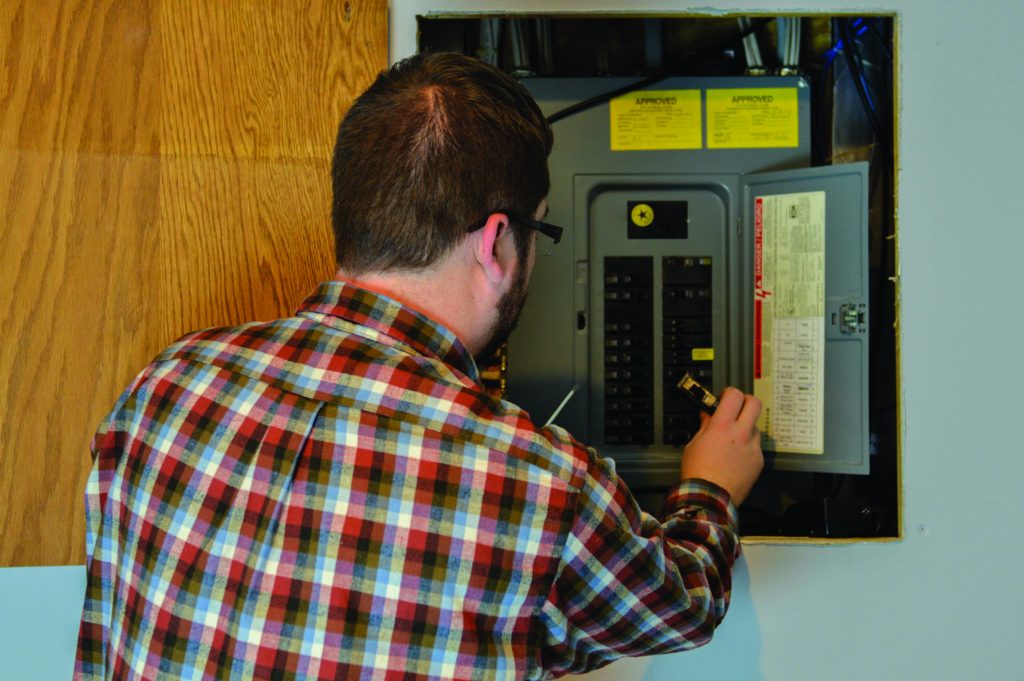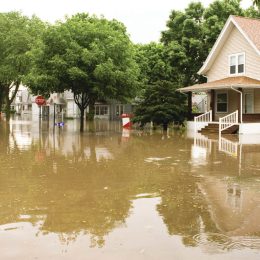
Many move into a new home without understanding the electrical system that makes all the electronics work. Would you know how to trip the main circuit if someone was being shocked in the bathroom?
“Understanding how your home’s electrical system functions is important not only to keep it properly maintained, but for your safety if a problem arises,” said Tom VanParis, CEO of Indiana Electric Cooperatives.
Your electric cooperative handles the line portion of your service, which includes everything up to the attachment point on your house. Everything beyond that point is called the “load side,” and everything on the load side is your responsibility.
Your electric cooperative connects the outdoor wires to the meter mounted on the outside of your home. The meter measures the amount of electricity your home uses and determines your bill each month. Tampering with this meter is both extremely dangerous and illegal.
You’ll find your electrical service panel inside your home. It keeps everything running. The service panel sends electricity to the light switches, outlets and appliances. If your electricity short circuits or an overload shuts down power, your service panel is where you will go to restore the flow.
Depending on the age of your home, either fuses or circuit breakers help protect your home’s electrical system from overloading thus preventing an electrical fire. The main breaker will cut all power to the home, and the individual circuit breakers administer power to individual parts of the home. If you look in your service panel, all of the circuits and what they power should be labeled. A couple times a year, try turning each breaker on and off. This helps familiarize you with each component of the box and keeps them from getting stuck.
You are responsible for making sure no circuits are overloaded. A general rule when setting up your breakers is to have only one big ticket item on a circuit.
Once you understand the basic workings of your home’s electrical system, you will be able to jump into action if a problem arises.
Knowing the Lingo
When you call an electrician to assist you with a problem, it’s helpful to know the lingo. Here are a few electrical terms to know:
Electrical Service Panel: Distributes electricity to switches, outlets and appliances. This is where you can restore the flow to an overloaded circuit or shut down the power to the circuit.
Fuse: Safety devices used to protect individual circuits that were installed in homes before 1965. Every time a fuse is blown it must be replaced.
Circuit Breakers: Safety devices used to protect individual circuits that are now used in all newer homes. When a circuit is “tripped,” it just has to be mechanically reset to resume operating.
Arc Fault: A dangerous electrical problem caused by damaged, overheated or stressed electrical wiring or devices.
Grounding: The method used to connect an electrical system to the earth with a wire. Grounding will help protect the person working on the system, the system itself, and any appliances and equipment that are connected to the system.



